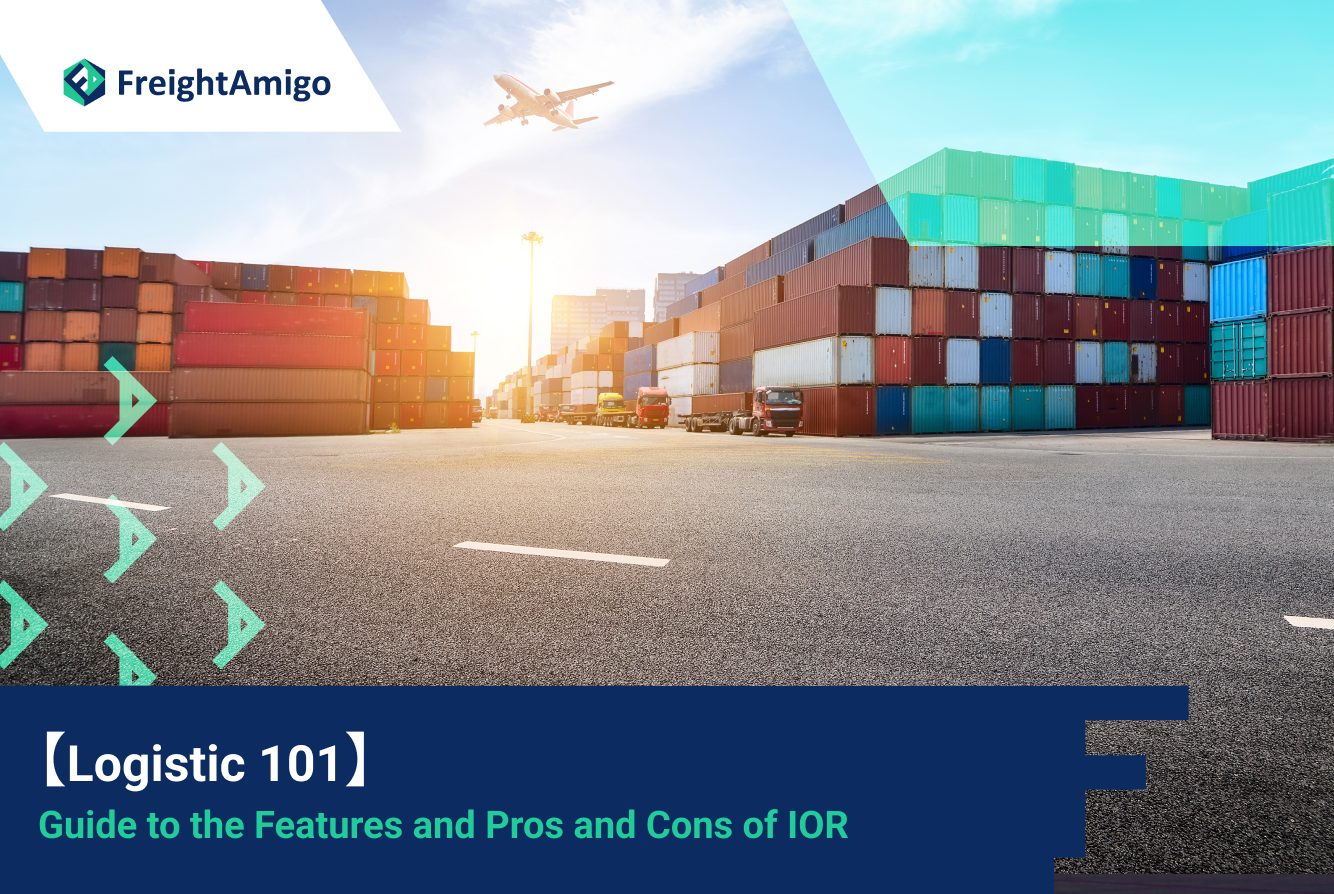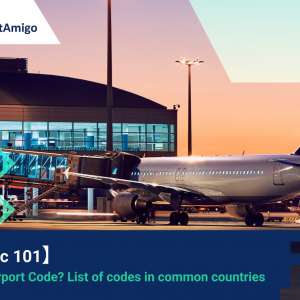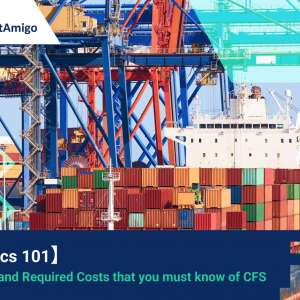Author Name:Tiffany Lee – Marketing Analyst at FreightAmigo
Understanding the advantages and disadvantages of the IOR trade term is crucial to achieving successful delivery of international shipments. IOR is a commonly used international trade term that describes the delivery agreement between the seller and the buyer. However, do you have a clear understanding of IOR and know which trade term is best suited for you? This article will introduce the characteristics and pros and cons of IOR, as well as the responsibilities it represents for both the buyer and the seller, making it easier for you to understand different trade terms and find the one that best suits you.
Want to compare the best Express, Air Freight, Sea Freight, Rail Freight & Trucking rates so as to have better control on cost?
Meaning of IOR
IOR refers to the importer of record or the recorded importer, which can be an individual or an entity. They are responsible for submitting all necessary documents to customs, paying relevant taxes and duties, and completing customs clearance procedures. Their role is to ensure that imported goods comply with local regulations and standards and enter the country smoothly.
Features of IOR
- Customs clearance: IOR is responsible for ensuring that all necessary customs clearance procedures are completed and goods are released from customs in a timely manner.
- Document preparation: IOR is responsible for preparing and submitting all necessary import documents, including commercial invoices, packing lists, and certificates of origin.
- Communication with stakeholders: IOR must maintain open communication with all parties involved in the import process, including the buyer, seller, freight forwarder, and customs officials, among others.
- Legal obligations: IOR is responsible for complying with all laws and regulations related to importing goods into the country, including obtaining necessary permits, licenses, and certifications, and paying any applicable taxes.
- Responsibilities of an import agent: IOR assumes legal responsibility for the imported goods and is responsible for any loss or damage that may occur during transportation or customs clearance.
Advantages
- Ensuring the legality of shipments: IOR ensures that imported goods comply with all relevant laws and regulations, thereby avoiding any illegal activities.
- Convenience: By using an IOR, importers can delegate all customs-related affairs to a professional service provider, saving time and effort.
- Reliability: IOR is responsible for ensuring that goods are smoothly cleared through customs and delivered on time, thereby improving delivery reliability and accuracy.
- Knowledge and expertise: IOR has professional knowledge of import regulations, customs requirements, and tax policies, and can provide professional advice and support to help importers better understand import processes and regulations.
- Risk control: IOR is responsible for the import, customs clearance, and delivery of goods, which can effectively control various risks and uncertainties in the import process.
Disadvantages
- High cost: Using IOR services requires paying additional fees, which may increase import costs.
- High dependence on agents: Entrusting IOR to handle customs affairs requires trust in the service provider. If the service provider is unreliable or dishonest, it may affect the smooth delivery of imported goods. Moreover, communication is maintained between IOR and customs and other relevant parties, and if there are communication problems, it may lead to delays and errors in the import process.
- Lack of control over the shipping process: Using IOR may lead to a weakening of the importer’s control over imported goods, especially during customs clearance and delivery processes.
Differences between IOR and other trade terms
The main difference between IOR and other trade terms lies in the allocation of responsibility and obligation. In other trade terms, the responsibilities and obligations of the buyer and seller are allocated according to specific terms, while in IOR, the importer of record assumes all legal responsibilities and obligations for the imported goods, including customs clearance, payment of taxes, and submission of all necessary documents.
In addition, IOR is usually used for goods that require import permits or other special licenses, which require specific customs procedures and processes, thus requiring a professional service provider to assist in completion.
In contrast, other trade terms may be more flexible and adjusted according to specific situations and needs. Buyers and sellers can freely negotiate and determine their respective responsibilities and obligations to adapt to different imported goods and market demands.
Tips when using IOR
- Choose a reliable service provider: Be careful in selecting an IOR service provider, as they play a crucial role in your shipping process and directly impact whether the goods can be successfully and timely delivered. You can refer to online reviews and select an experienced and reputable IOR service provider.
- Understand import requirements and demands: Before using IOR, you need to fully understand the requirements and demands of the imported goods, including requirements for permits, certifications, taxes, and customs clearance. This will help you and the IOR service provider to collaborate more effectively and ensure smooth import and delivery of the goods.
- Maintain communication: Maintaining open communication with the IOR service provider is crucial. You need to provide all necessary information and documents in a timely manner and respond promptly to any related questions and concerns to ensure the import process proceeds smoothly.
- Comply with regulations and rules: IOR is responsible for ensuring that imported goods comply with all relevant regulations and rules, so you need to ensure the accuracy and completeness of all documents and information to avoid violating regulations and rules.
There are different options for cargo transportation. If you want to choose the most convenient and suitable solution, it is best to have the full support of logistics experts! If you are planning to ship goods overseas, please go to the FreightAmigo page for inquiries.
Extra Readings:
【Logistics 101】Definition of Terminal Handling Charges (THC) and Its Calculation
【Logistic101】A Complete Guide to DDP and What You Should Know
===
If you have any inquiries on logistics/supply chain, feel free to contact FreightAmigo now:
Chat with us online OR
Phone : +852 28121686
WhatsApp: +852 27467829



